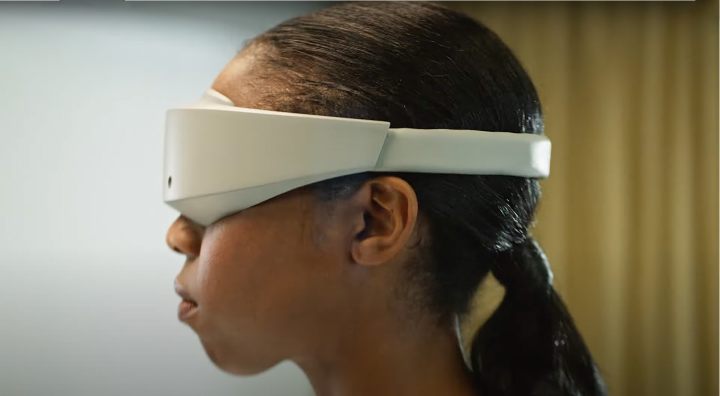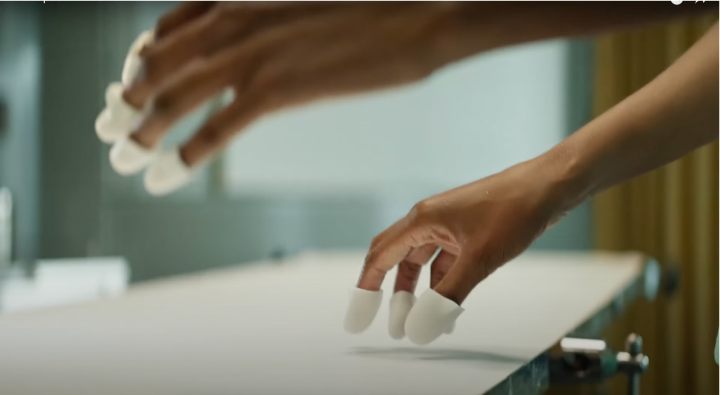A metaverse promotional video shows a futuristic-looking virtual reality headset. There is no confirmation that this is an actual product in development, but it is clear that the new device is more advanced than the upcoming Cambria headset.
Fingertip sensors can be used to quickly identify finger location and provide feedback.

Meta posts a few videos each month that represent some near-term hardware and others a bit further out in the future for virtual reality headsets.
In the most futuristic video, Meta imagines a time when the metaverse might have rendering quality that is indistinguishable from reality. It will be possible someday, but it is hard to say when that will happen. There are three examples of the metaverse in the video.
The professor can manipulate virtual 3D objects such as a biological cell to discuss its metabolism in a lecture that is accessible through the metaverse. The cell can be thrown to a student and looked at more closely as it splits.
A medical student practices for surgery on a virtual patient using an advanced virtual reality headset and sensor that might provide better feedback. This type of training, which can be repeated hundreds or thousands of times, is very useful before moving on to dissections.

The concept video shows history coming to life with modern students visiting ancient Rome and watching a debate over the merits of Julius Caesar as a ruler. The students can look at the scene in a different way.
The current state of virtual reality and how a father and daughter can connect even though they are thousands of miles apart is shown in another video. The app appears to be Real VR Fishing, a fishing simulation that is available for $20 for a pair of virtual reality headsets. The metaverse is here in some ways.
There is a lot of work to be done before the future metaverse is a reality. The early versions of classrooms, hands-on training, and historical locations are well done within the limitations of the current hardware. It's not clear what will become possible with more advanced headsets.
The delay won't be long since Meta's Cambria is expected later this year. It will be interesting to see how well the early metaverse can be rendered.